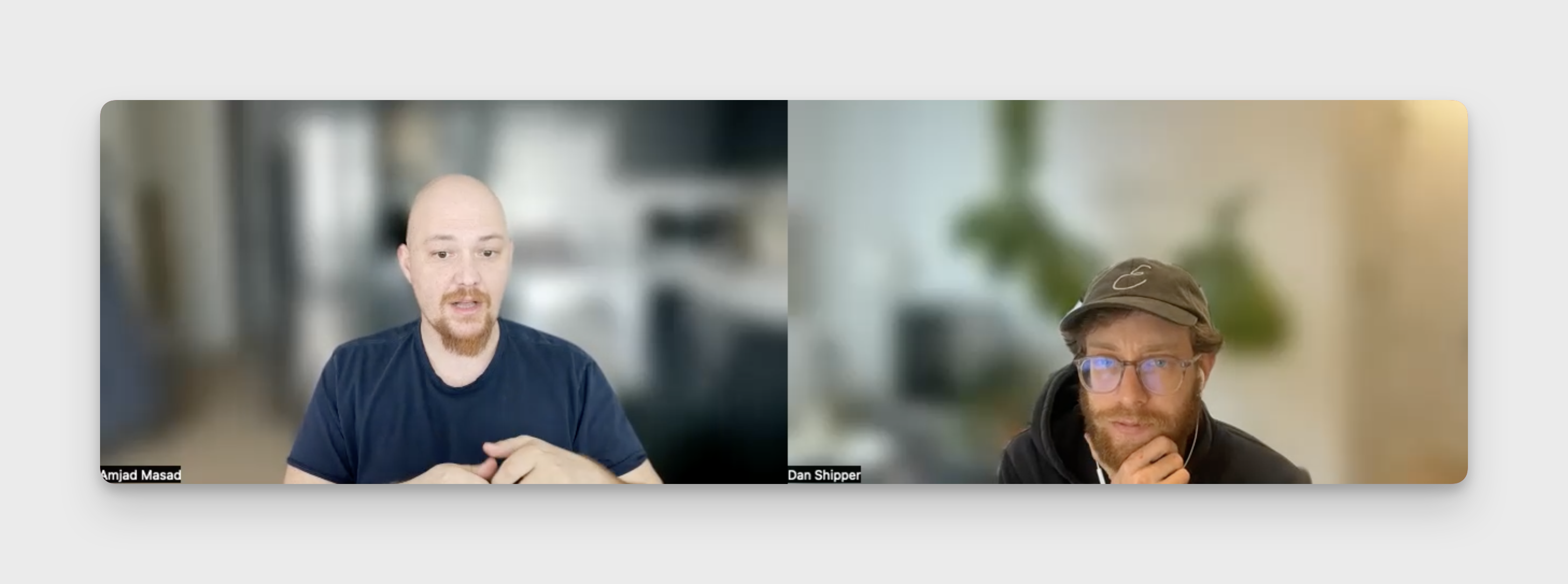
Sponsored By: Viable
This essay is brought to you by Viable, the Generative Analysis platform that redefines data-driven decision-making. Say goodbye to manual data crunching and hello to lightning-fast, AI-powered insights from your unstructured data.
The first thing I asked Replit founder, Amjad Masad, is whether he’d still want his kids to learn to code.
Amjad is both a long-time programmer, and the founder of Replit—the newest AI unicorn. They're a web-based development environment that announced this week that they raised almost $100m dollars at a $1.6B valuation from a16z and a host of other top investors. They’ve built a Github CoPilot competitor, called GhostWriter, and part of their mission is to give every programmer an AI team member that can write code for them.
So, I wanted to know, does programming still matter?
He told me that he believes that the leverage on programming skills has gone way up in the last year. He thinks that the current generation of AI tools are inherently augmenting tools, not automating tools. They might change the bundle of skills you need to be a programmer—you might act more like a guide or a manager in many instances than writing code yourself. But he believes that programming skills actually become more important in an AI-driven world. So yes, he still wants his kids to learn to code.
In other words: even though he could—and even though maybe he should—Amjad isn’t blindly banging the AI drum.
He actually struck me as one of the few people in the space who has the right level of excitement. Replit has been prototyping AI tools for the last 3-4 years, long before they were popular. So Replit isn’t a Johnny-come-lately entrant into this space. Instead he’s someone who believes deeply in the long term potential of the technology, but can also acknowledge its significant present limitations. He does a good job of not swinging between poles of mania or doom, and I left the interview feeling grounded, and smarter.
We covered his thoughts on two big topics: the future of programming, and how startups can win against incumbents in the AI race. The second is something Amjad knows a lot about too. Replit’s going up against Microsoft in a quest to own how you build software with AI. And so, they’re facing the biggest question every single one of today’s startups has to face: how do you build and win with an AI product against a better funded incumbent that also has access to AI?
Amjad has a plan. Read on to learn more.
Amjad introduces himself
Hi, I’m Amjad. I'm originally from Jordan—born and raised there. I came to the US in 2012 to work at Codeacademy in New York. I was a founding engineer there. I actually built one of the first open source in-browser coding sandboxes while I was there, so that's the predecessor to Replit. I was obsessed with this idea of making programming easier to get started with and more fun. I wanted to make hacking easy, so you can have an idea and build it fast, instead of needing to plan a lot and set up a big development environment. It's been my obsession over my career to just make programming more fun and accessible.
I worked at Codeacademy in New York for a while, then joined Facebook. At Facebook I worked on the React team and then was one of the founding engineers on React Native, and built the entire JavaScript runtime and compiler tool chain. I brought the same ideas to React: fast feedback loops, fast updates, and refresh. I wanted you to be able to work on it as if you're working in a sandbox. In 2016, I went back to browser-based coding and started Replit as a company with my wife Haya, who's our head of design now. And we pursued the same mission: just make programming more fun and accessible.
The importance of learning to code in the AI era
Learning how to code becomes more important in a world with AI.
AI means that the return on investment from learning to code just went way up. AI models are great at generating code, but they go off the rails easily. They’re inherently statistical and stochastic, so they make a lot of mistakes. That will get better asymptotically, but for the foreseeable future, they’ll need human input.
That means in this new world, you can suddenly build incredible things by leveraging these tools to generate code. And, if you can program, you can understand where they’re getting things wrong and fill in the gaps.
You become less of a traditional programmer and more of a guide to bring your ideas to life. These are inherently augmenting technologies, not automating technologies.
Another way to say this is that these models are really good as copilots. And I think that will create deflationary pressure in the environment where individual companies may need fewer programmers. So it will have a significant impact on productivity from that perspective.
That doesn’t mean that we’ll need fewer programmers overall though. I think we’re far away from automating programming completely, even though autonomous agents are popular right now. The problem with autonomous agents is that the errors they make compound. Each time the LLM gets called there’s a certain amount of errors, and by the time they get to the 10th loop on something they’re very likely to have gone off the rails.
The Only Subscription
You Need to
Stay at the
Edge of AI
The essential toolkit for those shaping the future
"This might be the best value you
can get from an AI subscription."
- Jay S.
Join 100,000+ leaders, builders, and innovators

Email address
Already have an account? Sign in
What is included in a subscription?
Daily insights from AI pioneers + early access to powerful AI tools






.png)



Comments
Don't have an account? Sign up!